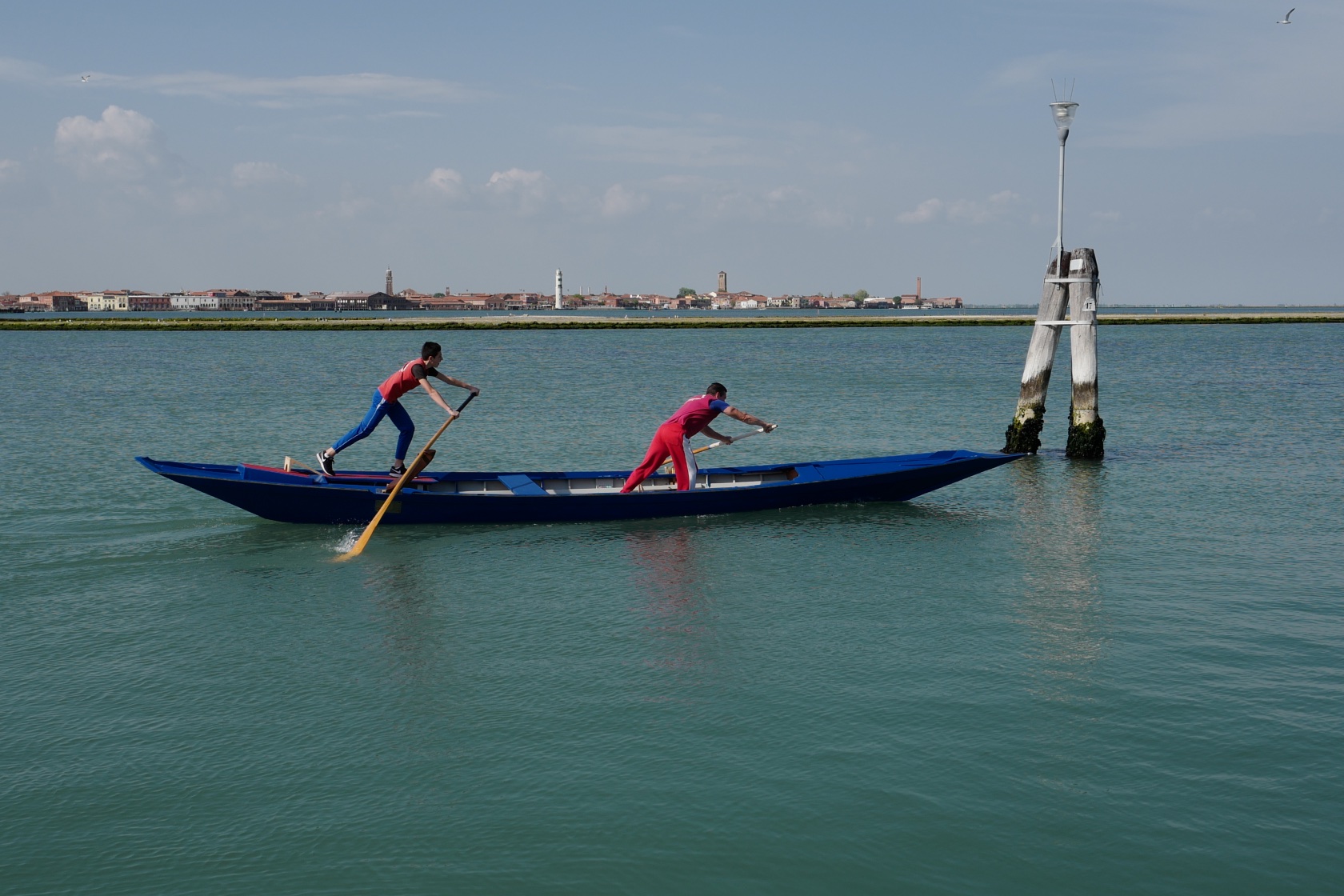Learning the craft

Trainee gondolieri in Venice.
Quote of the Day
”Social media can be vainer and more vacuous than any newsletter, and it is distracting into the bargain. Seth Stephens-Davidowitz, data scientist and author of Everybody Lies, points out the sharp distinction between Google searches and Facebook posts. A sentence in a Facebook post beginning “My husband is . .. ” will tend to continue with “the greatest” or “my best friend”. A Google search beginning “Is my husband . . . ” usually continues “gay” or “a jerk”. What we say proudly on Facebook is very different from what we whisper to Google.”
- Tim Harford
Musical alternative to the morning’s radio news
Morten Lauridsen | O Magnum Mysterium | King’s College Choir | 2009
One of the lovely thing about living in Cambridge is that one can go to Evensong in King’s on a winter’s afternoon and hear this kind of singing.
Long Read of the Day
He conceived of the Metaverse in the ’90s. He’s unimpressed with Mark Zuckerberg’s version.
Kara Swisher’s conversation with Neal Stephenson.
Transcript of a really fascinating exchange. It starts with the notion of a Metaverse (an idea that Stephenson launched many years ago in his dystopian novel Snow Crash) but rapidly gets on to discuss his new book, Termination Shock, which is about what happens when a super-rich billionaire decides to do something about global warming by effectively creating an artificial volcanic eruption (a giant sulphur gun).
Sample:
Swisher: First of all, what does “Termination Shock” mean to you? Explain it to people who have not read the book yet.
Stephenson: Sure. So there are a number of ideas kind of under the heading of so-called geoengineering, meaning technological interventions in climate to blunt the effects of having too much carbon dioxide in the atmosphere, basically. One of the kind of hypothetical drawbacks that’s been talked about is that if somebody were to begin intervening in the climate to hold down the temperature, and then they stopped, that it would create a so-called termination shock. Meaning that the climate would very suddenly snap back to kind of what it ought to be with unpredictable and kind of violent — presumably violent results. So “termination shock” is just a phrase that one hears sometimes when people are talking about geoengineering and climate change that I thought sounded cool.
Worth reading in full. Stephenson is an amazingly perceptive and imaginative writer. I’ve been following him ever since I first read his famous essay, “In the Beginning was the Command Line”, which is what convinced me that it was possible to write interestingly and elegantly about computers. If you’re tempted by it, book some time out: it’s 78 pages long and, IMHO, still wonderful.
Real-world data show that filters clean COVID-causing virus from air
An interesting Nature report of an experiment conducted in our local hospital:
Earlier experiments that tested air filters’ performance assessed their ability to remove inactive particles while operating in carefully controlled environments. As a result, “what was not known was how effective they would be in a real-world ward setting for clearing SARS-CoV-2”, says study co-author Vilas Navapurkar, an intensive-care unit (ICU) physician at Addenbrooke’s Hospital in Cambridge, UK. Hospitals have turned to portable air filters as an attractive solution when their isolation facilities are full, Navapurkar says, but it’s important to know whether such filters are effective or whether they simply provide a false sense of security.
To determine how the filters stand up to real-world conditions, Navapurkar and his co-authors installed them in two fully occupied COVID-19 wards — a general ward and an ICU. The team chose high-efficiency particulate air (HEPA) filters, which blow air through a fine mesh that catches extremely small particles. The researchers collected air samples from the wards during a week when the air filters were switched on and two weeks when they were turned off.
In the general ward, the team found SARS-CoV-2 particles in the air when the filter was off but not when it was on. Surprisingly, the team didn’t find many viral particles in the air of the ICU ward, even when the filter there was off. The authors suggest several possible reasons for this, including slower viral replication at later stages of the disease3. As a result, the team says that measures to remove the virus from the air might be more important in general wards than in ICUs.
Looks like a really useful experiment which suggests that HEPA air cleaners provide a cheap and easy way to reduce risk from airborne pathogens.
Isn’t it funny, though, to think back to March 2020 when few were taking seriously the idea that Covid-19 was mostly transmitted by airborne aerosols rather than by droplet-infected surfaces? And even now, surface-disinfecting hygiene-theatre still goes on.
My commonplace booklet
Every Schubert Song, Ranked by Jeffrey Arlo Brown, after listening to 40 hours of lieder.
Heroic is the only word for it.
This Blog is also available as a daily email. If you think that might suit you better, why not subscribe? One email a day, Monday through Friday, delivered to your inbox. It’s free, and you can always unsubscribe if you conclude your inbox is full enough already!
